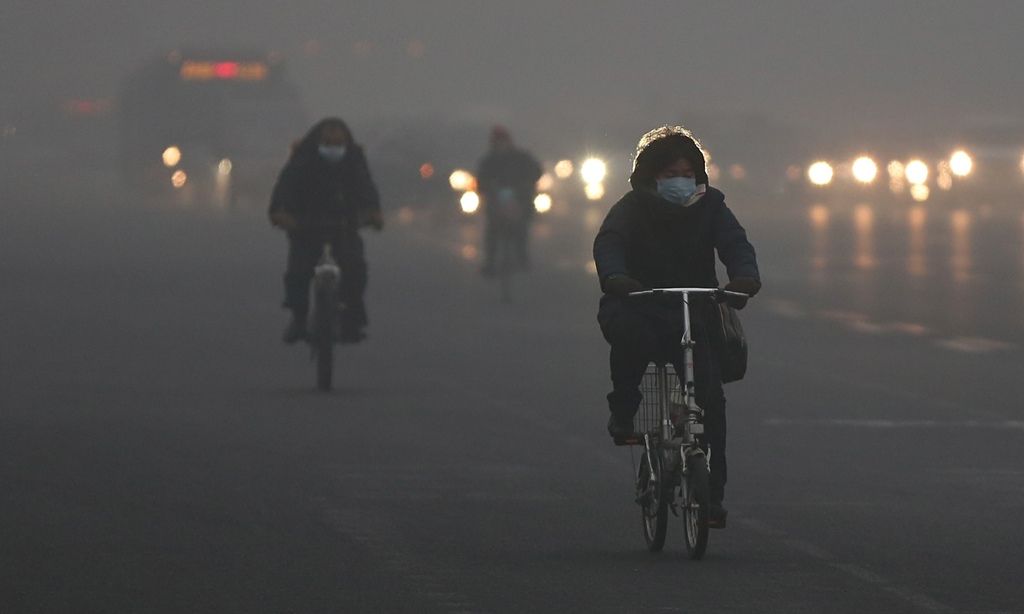Some Basic Q&A on Renewable Energy
On average, I spend a few hours a month helping young people, from grade-schoolers to master’s candidates, on the papers they’re writing by proving my viewpoints on renewable energy. Here’s a typical example:
Mr. Shields: I’m …. a senior at Mountain Vista High School. I am currently working on my senior project about the implementation and use of renewable energy resources. I am sort of a movie buff and one day would like to become a scriptwriter. I also am sort of an environmentalist which is why I chose to do my senior project on this particular topic. Currently my plan is to obtain an engineering degree that will help me expand the use of renewable energy.
I would like to know if I could ask you a few questions about your subject of expertise. It is a requirement that I have an interview with an expert on the topic of my project and I would very much like that to be you. And of course, thank you for your time.
Question: Is it possible to fully implement sources of renewable energy as our chief fuel source? If so, when?
My Answer: Let me begin by saying that I applaud what you’re doing, insofar as you’re heading into a life that will make a material difference in the outcome of an entire civilization. Not everyone can say that. To begin:
Yes, it’s possible; in fact, if we still have a civilization here in 50 – 75 years, considering the monumental damage we’re doing to it via our extravagance with fossil fuel energy, we will have necessarily made that change.
The question of when is an excellent one. I argue that it’s happening far faster than most people believe, and I provide 14 solid reasons for my belief in my most recent book: “Bullish on Renewable Energy.” At the heart of the matter is pure market economics; the cost per kilowatt hour of generating energy from renewable resources is plummeting. Even if the world cannot agree on how to phase out coal, oil, and natural gas, it most certainly likes inexpensive energy. Personally, I’ll be surprised if 80%+ of our energy doesn’t come from renewables by the year 2050.
Question: What is, in your opinion, the best source of renewable energy? Why?
My Answer: Solar PV and wind have huge advantages over all other types of renewable sources (solar thermal, biomass, geothermal, hydro), because they are fairly mature and totally scalable. Specific locations around the globe, however, are best served by the local resources that happen to be in abundant supply, e.g., geothermal in Iceland, hydro in Nepal, etc.
Question: Why is renewable energy preferable, if at all?
My Answer: On a per-kWh basis, amortized over the lifetime of the equipment and considering the cost of fuel (zero for renewables), we’re finding that a) the cost per kWh from renewables is coming into parity with conventional sources, and b) the environmental footprint associated with renewables is far less; as you’re probably aware, coal is by far the worst polluter on the planet, not only in terms of CO2, but of methane, oxides of nitrogen and sulfur, and a huge range of heavy metals and radioactive isotopes. See photo below, taken from the World Health Organization, an organization that recently named air pollution as a threat; they have a firm grasp on the obvious.
Another answer is contained in the definition of the word “renewable.” We won’t be running out of energy from these sources.
Question: Why do we, as a planet, not already use renewable energy most of the time?
My Answer: This is complicated, but the two core issues are:
The fossil fuel industry has an enormous amount of power that it’s wielding to impede the progress of renewables.
The developing world can only afford to use the form of energy that is the absolute least expensive, which for right now, is burning coal. Suppose you’re India, the world’s third biggest polluter, with a population more than one-and-one-quarter billion people that’s growing both in raw numbers and in energy consumption per capita. This means burning more coal (currently 59% of their grid mix) that totals 255 gigawatts. Yes, you proudly tell the world that you’re investing in renewables, and that’s true, but at the same time you’re adding 14% to your coal consumption every year.
Question: How, if at all, would it be possible for the world of today to switch over to renewable energy sources? If it is possible, how long do you predict it would take?
My Answer: Given my answers above, I believe the forces of market economics alone are forcing both rapid and radical change. I believe this is one of those issues like cell phones. You’re too young to remember, but when you were a baby, cell phones were quite rare and expensive, and most people, the industry analysts included, predicted slow growth. A few years later, there were five billion cell phones on a planet whose population was about 6.5 billion. Now admittedly, there are areas in which this analogy breaks down as it could be applied to the world energy scene, but I predict that this will hold up by and large. The basic reason is that the forces that want to kill renewable energy are powerless to do so; they’re in the process of losing the war when it comes to dollars and cents—and, as they know better than anyone else, nothing else really matters.
Thanks for your interest. I hope you do well on your project.
And again, well done to you for pursuing a meaningful course in your life. You’ll have friends in college who are headed off to Wall Street. They may get richer monetarily, but they most certainly won’t be happier or more fulfilled.


